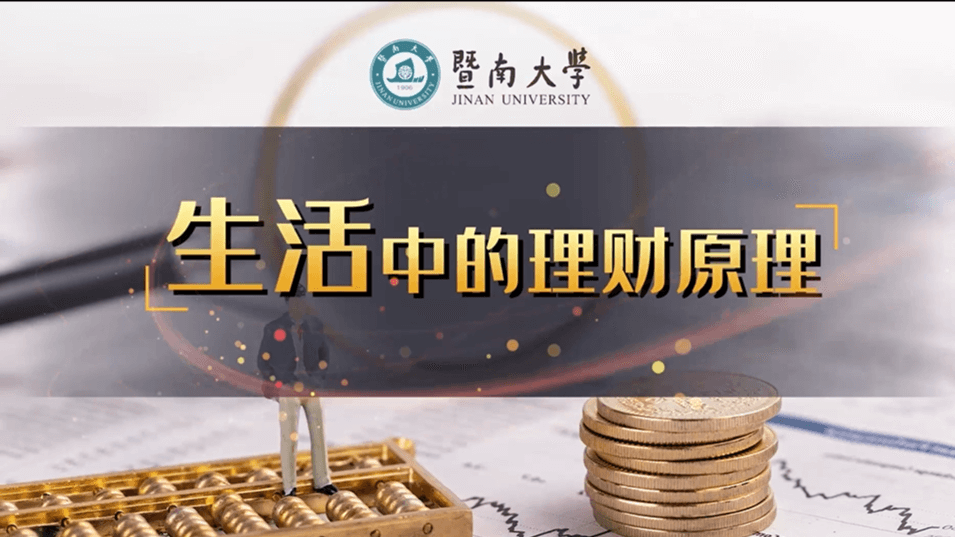
当前课程知识点:心理学之旅 > 第6章 记忆 > 第21讲 非故意的谎言—记忆重构 > 第21讲 非故意的谎言—记忆重构
先问你一个问题
Let me ask you a question first
你记住的知识会忘记吗
Will you forget what you remember?
嗯 我觉得应该是会的
Yes, I think so
我就感觉 就是在考试的时候都会感觉到
I think, sometimes I think I have learned the knowledge
有些知识仿佛是学过的
in the examination
但考试的时候又记不到
but I can’t remember them
会忘记
Yes
看来大家都觉得
It seems that we all think that
记住的知识肯定会忘记
the knowledge we remember will surely be forgotten
是啊 如果记住的知识都不会忘记的话
Yes, if you can never forget the knowledge you have memorized
岂不是考试都考一百分了
don't you get 100 points in the exam
我们为什么记不起某些知识呢
Why can't we remember some knowledge?
心理学家认为
Psychologists believe that
人的长时记忆之所以会出现提取困难
the reason why it is difficult to retrieve long-term memory
是因为学习和回忆之间受到其他刺激的干扰
is that learning and memory are interfered by other stimuli
如果前面学习的信息
If the information learned earlier
对后面的信息产生干扰
interferes with the information learned later
这叫前摄抑制
it is called proactive inhibition
如果后面学习的信息
If the information learned later
对前面的信息产生干扰
interferes with the information learned earlier
就叫倒摄抑制
it is called retroactive inhibition
有的心理学家认为
Some psychologists believe that
长时记忆信息记住了
long-term memory information will never be lost
就永远不会丢失
after being memorized
只是缺少提取线索
just lack of clues
就像在图书馆里放一本书
It's like putting a book in the library
如果找不到了
If it can't be found
并不等于书就不在图书馆里了
it doesn't mean that the book is not in the library
并不等于书就不在图书馆里了
it doesn't mean that the book is not in the library
只是缺少一个线索
It just lacks a clue
如果有线索 我们就能找到这本书
If there is a clue, we can find the book
我们记忆中的信息也是如此
The same is true of the information in our memory
不能提取不是因为没有记住
It can't be retrieved not because we don't memorize
而是因为没有线索
but because there is no clue
它还在我们的头脑中保存着
It still exists in our mind
只要有适当的提取线索
As long as there is a proper clue
就一定能提取出来
it can be retrieved definitely
关于长时记忆遗忘的原因
As for the causes of long-term memory forgetting
还有一种来源于精神分析理论的压抑说
there is also a repression theory derived from psychoanalytic theory
又叫做动机性遗忘
which is also called motivational forgetting
这种理论认为
According to the theory of repression
人的某些经验之所以不能回忆
the reason why some experiences can't be recalled
是因为回忆这些信息
is that recalling these information
会让人产生痛苦的体验
make people have painful experience
于是自我压抑了这些信息
so these information are repressed by ego
这些信息无法进入意识
because they can't enter the consciousness
我们就不能回忆了
and we can't recall these information
但在一定条件下
But under certain conditions
被压抑的内容还可能被回想起来
the repressed content may be recalled
那么这种说法对吗
So is that correct?
有一个著名的案件与这种记忆有很大关系
There is a famous case that has a lot to do with this memory
1970年 刚上小学四年级的苏珊
In 1970, Susan, who was just in the fourth grade of primary school
突然失踪了
disappeared suddenly
后来她的尸体被发现
Her body was found later
验尸报告表明
The autopsy report showed that
她生前曾经遭受过性侵犯
she had been sexually assaulted before her death
但是警方一直没能找到凶手
But the police have not been able to find the killer
以至于成为长达20年的悬案
so it became a 20-year suspense
1990年 苏珊的好朋友
In 1990, Susan's good friend
已经有两个孩子的艾琳·富兰克林突然记起来
Eileen Franklin, who had two children, suddenly remembered that
是自己的父亲乔治·富兰克林打死了苏珊
her father, George Franklin, killed Susan
而且他父亲还曾经猥亵自己
and that his father had molested her
于是她把自己51岁的父亲告上了法庭
So she sued her 51 year old father
艾琳为什么在20年以后才想起这件事呢
Why did Eileen think of the event 20 years later?
根据动机性遗忘理论
According to the theory of motivational forgetting
如果人在成长过程中遭受过痛苦的经历
if a person has painful experiences in the process of growing up
自我会压抑这些经历
the ego will repressed these experiences
这种记忆叫作“被压抑的记忆”
This kind of memory is called "repressed memory"
尽管没有其他可靠的证据
Although there was no other reliable evidence
但艾琳的证词使舆论一边倒
Eileen's testimony had brought public opinion to one side
乔治· 富兰克林在1990年11月被判处一级谋杀罪
George Franklin was sentenced to first degree murder in November 1990
是有史以来第一位因为“被压抑的记忆”而被判入狱的人
the first person ever jailed for "repressed memory"
但他没有放弃上诉
But he did not give up his appeal
直到6年后被判无罪释放
until he was acquitted six years later
那么 艾琳突然回忆起来的信息
So did Eileen's sudden recall of information
是不是确实发生过又被压抑了呢
happen and be repressed?
其实 这些信息很可能从来就没有存在过
In fact, these information probably never existed
而是记忆重构的结果
but was the result of memory reconstruction
心理学家巴特利特
Psychologist Bartlett
在20世纪的30年代就已经发现了记忆重构现象
discovered the phenomenon of memory reconstruction in 1930s
他使用了顺序再产生的方法
He used the method of serial reproduction
给被试一张图片
He gave a picture to a subject
要求他根据记忆画出来
asked him to draw it according to his memory
然后把画出来的画第二个人看
and then showed the picture to the second person
让第二个人再根据记忆画出来
asked the second person to draw it according to his memory
然后再给第三个人
and then gave it to the third person
这样依次下去 直到第18个被试
The cycle continued in this way until the 18th subject
结果发现
The results showed that
被试凭记忆画出的画
the pictures drawn by the last subject changed a lot
与最初的图片相比有很大变化
compared with the original pictures
后来的图片变得更加完整
and the later pictures became more complete
合理和有意义了
reasonable and meaningful
巴特利特还使用故事进行了这样的实验
Bartlett also experimented with stories
给第一个人讲故事
He told the story to the first person
让第一个人把故事讲给第二个人
let the first person tell the story to the second person
第二个人再把故事讲给第三个人
the second person tell the story to the third person
以此类推
and so on
把最后一个人讲出来的内容
The story what the last person told was compared
与最初的信息进行比较
with the original message
巴特利特故意使用不太连贯
Bartlett deliberately used the story
甚至有些支离破碎的印第安人故事
that was not coherent or even fragmented
目的是看看被试会不会在复述过程中加进修改
to see if the subjects would change them in the retelling process
结果发现
It turned out that
后来的故事确实比原文更合乎逻辑 更加前后一致
later stories were indeed more logical, consistent
并且总的说来也短了很多
and generally shorter than the original
从这些研究结果来看
These results showed that
在回忆的过程中
in the process of memory
我们经常使用已经保存的内容
we often use the stored content
以及头脑中的图式
and the schema in our mind
重新产生所学习的内容
to regenerate the learned content
这些内容与最初学习的内容往往差别很大
which is often very different from the original learned content
所以 我们的回忆经常是不准确的
Therefore, our memories are often inaccurate
回到艾琳·富兰克林的例子
Back to the case of Eileen Franklin
在这中间到底发生了什么呢
What happened actually?
在20世纪80年代
In the 1980s
一种受精神分析理论影响的心理疗法
a kind of psychotherapy influenced by psychoanalytic theory
“记忆恢复治疗法”很流行
memory recovery therapy, was very popular
治疗师借助各种技巧
With various techniques
努力帮助病人找回被压抑了的记忆
therapists tried to help patients recover the repressed memory
在这个过程中
In this process
类似于小时候父亲给女儿洗澡这样的事情
events like a father bathing his daughter when she was a child
容易被心理治疗师用催眠
were easy to be shaped by psychotherapists through hypnosis
解梦等方式
dream interpretation and other ways
into memories about sexual assault
塑造成被父亲性侵的记忆
into memories about sexual assault
塑造成被父亲性侵的记忆
从1985到2000年
From 1985 to 2000
美国就有超过800起类似的案件
there were more than 800 similar cases in the United States
这其中有的被判刑 有的被无罪释放
Some of them were sentenced, some were acquitted
美国心理学家洛夫特斯的研究发现
Loftus, an American psychologist, found that
尽管人们对自己的记忆非常自信
although people were very confident in their memories
但实际上 我们经常不能准确重构我们的记忆
in fact, we often can't accurately reconstruct our memories
她发现
She found
如果让被试栩栩如生地想象自己奔跑
if the subjects were asked to vividly imagine running
被绊倒 玻璃划破手以及在超市里迷路等等
tripping, breaking glass, getting lost in the supermarket and so on
不久以后就会认为这些事情是真的
they would soon think these things were real
所以 我们实际上经常混淆我们的想象和记忆
Therefore, we often confuse our imagination and memory
这中间往往发生记忆重构
and memory reconstruction often occurs
洛夫特斯基于自己的研究
Based on her research, Loftus believed that
认为艾琳的记忆是受到催眠师的影响
Eileen 's memory was influenced by hypnotists
把想象的或听说的事情
and she mistakenly thought
误认为是真实发生过的
that what she imagined or heard actually happened
这实际上是记忆重构的结果
which was actually the result of memory reconstruction
这些经历根本就没有发生过
These experiences had not happened at all
洛夫特斯也曾经为乔治·富兰克林做过辩护
Loftus also defended George Franklin
但没有成功
but failed
后来 她发表了更多研究
Later, she published more research
影响越来越大
which had a growing impact
也有更多因为“被压抑的记忆”而被判入狱的人
and more people who had been sentenced to prison for "repressed memory"
得到了她的帮助 恢复了自由
received her help and got freedom
好 今天的课就讲完了
OK, that's all for today
现在回顾一下主要内容
Now let's review the main content
今天我们主要讲了记忆重构现象
Today we mainly talked about memory reconstruction
记忆信息的提取失败
The failure of memory information retrieval
可能是前摄抑制或倒摄抑制的结果
may be the result of proactive inhibition or retroactive inhibition
但还有一种有争议的解释
but there is a controversial explanation
就是动机性遗忘
that is, motivational forgetting
但压抑的信息重新被提取出来
However, the repressed information retrieved again
可能是记忆重构的结果
may be the result of memory reconstruction
巴特利特和洛夫特斯的研究证明了
Bartlett's and Loftus 's studies proved that
人们回忆的信息很多都是
much of the information people recalled
记忆重构的结果
was the result of memory reconstruction
因而是不准确的
so it was not accurate
下次课我们将会讲到一个神奇的数字7±2
Next time we will talk about a magic number 7 ± 2
好 下次再见
OK, See you next time
-第2讲 理性之光—心理学是一门科学
-第3讲 寻找事实—心理学的研究方法
-第1章 作业
-第4讲 捷足先登—冯特创立心理学
-第5讲 心灵深处—弗洛伊德的精神分析理论
-第6讲 横空出世—华生与行为主义
-第7讲 融合与发展—心理学的新趋势
-第2章 作业
-第8讲 认知的第一步—感觉及其规律
-第9讲 获取信息—感觉的功能
-第10讲 超越元素—知觉的特性
-第11讲 感知三维世界—深度知觉
-第3章 作业
-第12讲 解决信息混乱—意识的功能
-第13讲 并不平静—睡眠
-第14讲 异常状态—梦、催眠与冥想
-第4章 作业
-第15讲 行为的变化—什么是学习?
-第16讲 建立联结—经典条件作用
-第17讲 行为的塑造—操作条件作用
-第18讲 不必参与的学习—观察学习
-第5章 作业
-第19讲 经验的积累—什么是记忆?
-第20讲 永不消逝的信息—长时记忆
-第21讲 非故意的谎言—记忆重构
-第22讲 转瞬即逝—短时记忆和感觉记忆
-第6章 作业
-第23讲 人类的荣耀—语言
-第24讲 策略与定式—问题解决
-第25讲 并非总是理性—推理与判断
-第7章 作业
-第26讲 行为的动力—动机及其来源
-第27讲 吃还是不吃?—饮食的生理与心理
-第28讲 追求成功的动力—成就动机
-第8章 作业
-第29讲 生命的色彩—情绪及其功能
-第30讲 生命色彩的解读—情绪理论
-第31讲 情绪双刃剑—压力
-第32讲 改变自己—压力应对
-第33讲 创造灿烂人生—幸福有方法
-第9章 作业
-第34讲 你有多聪明?—智力及其测量
-第35讲 因素及其超越—智力理论
-第36讲 遗传、教育、文化—智力的族群差异
-第10章 作业
-第37讲 千人千面—人格的概念和特征
-第38讲 描述差异—类型说与特质说
-第39讲 了解人格—人格测验.
-第40讲 膨胀的自我—自尊运动
-第11章 作业
-期末考试

